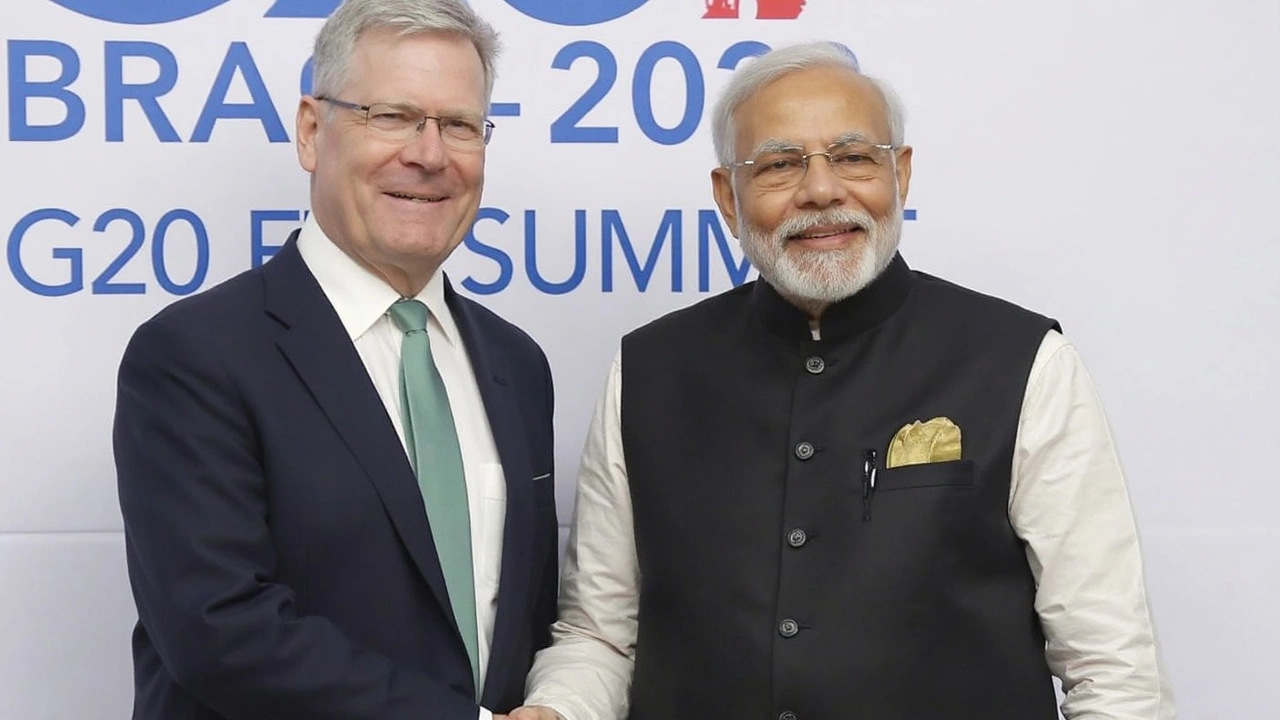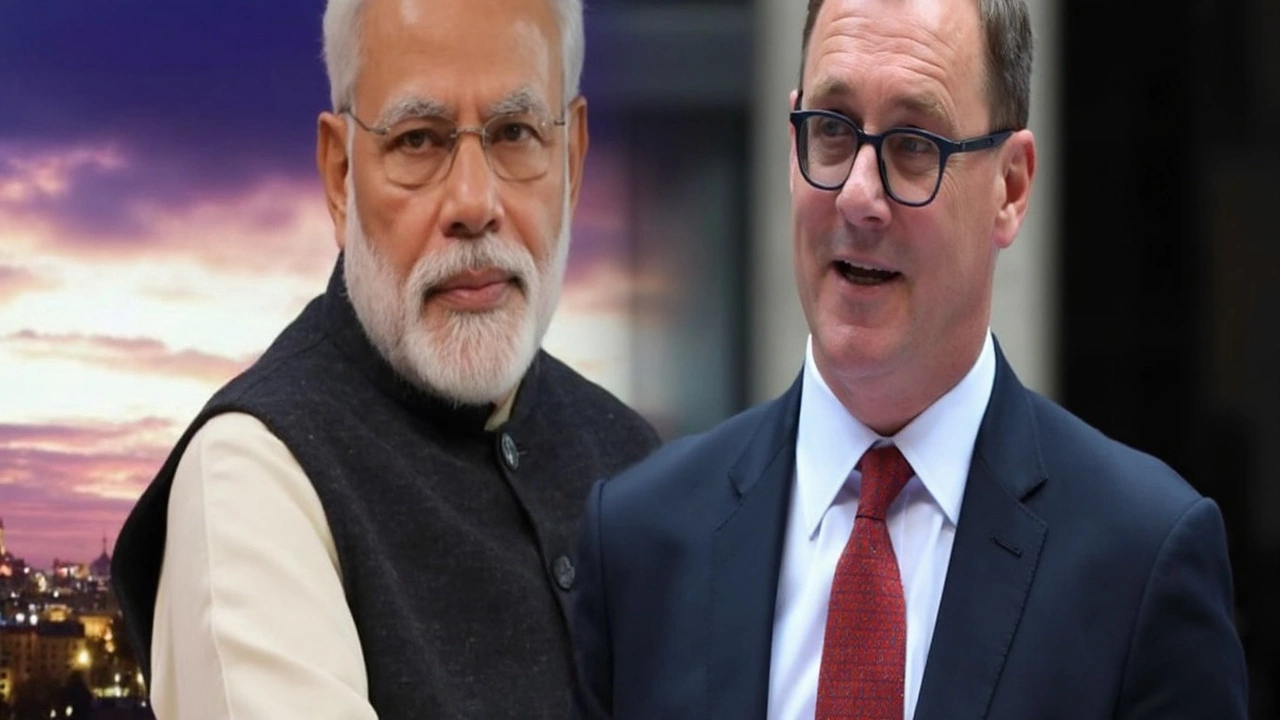India-UK Free Trade Agreement: Major Changes for Trade, Workers, and Business
It’s not every day you see two big economies shake hands on a deal this large. India and the UK sealed a sweeping India UK FTA (Free Trade Agreement) that cuts tariffs on 90% of the stuff they trade. To put it simply: goods like medicines, textiles, and food will flow more easily—and cheaply—between the two countries. Even more, 85% of these products will face zero tariffs within ten years.
Why does this matter? Because these sectors are huge for both countries. For India, it opens up its pharmaceuticals—think generic medicines, a multibillion-dollar industry—to British buyers. UK’s shoppers will see Indian textiles and clothing on their shelves at lower prices, and British firms get wider access to India's massive market. The food sector also stands to benefit, likely with Indian spices, grains, and processed foods being exported with fewer barriers. On the flip side, Indian consumers get smoother access to British products, from machinery to specialty foods.
The deal isn’t just about goods. It shakes up how both nations work together on services trade and new-age digital economy sectors. Think IT, consulting, fintech, and online platforms. It’s easier now for Indian and British service providers to operate across each other’s borders, bringing in more competition and new ideas. Both sides are expected to work on smoother visa processes and collaboration in areas like data privacy and digital payments—stuff that matters in today’s wired world.

Social Security and Worker Mobility: The Double Contribution Convention
Here’s another practical piece that’s easy to overlook but makes a big difference for professionals: the Double Contribution Convention. Indian workers sent by their employers to the UK will not need to pay into the UK's social security system for up to three years. In plain English, that means no double-dipping on pension and insurance payments—Indian professionals keep more of their hard-earned cash, and companies face less red tape when moving talent around the globe. For many in India’s IT and business sectors, this means jobs abroad come with fewer financial headaches.
This pact is meant to make it easier for Indian professionals, engineers, scientists, and even chefs to work in the UK without worrying about losing money to two different social security systems. It’s a win for workers and also helps UK companies tap skilled Indian talent without additional costs. Longer term, it builds goodwill and trust between the two countries, supporting bigger economic ambitions.
How did this all happen? The lead-up saw fast-paced meetings between India's Commerce Minister Piyush Goyal and UK Trade Secretary Jonathan Reynolds. When Prime Ministers Narendra Modi and Keir Starmer announced the agreements, they called them 'historic milestones.' Both leaders see this move as more than just trade policy—it’s about jobs, innovation, investment, and keeping their countries ahead as global partners, especially in a world where supply chains are shifting, and everyone’s looking to diversify their economic friends list.
For both India and the UK, this could be the start of a stronger, deeper partnership built on real economic opportunity—not just diplomatic soundbites.
